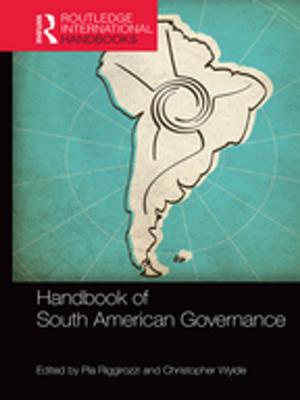Jung's Ethics
Moral Psychology and his Cure of Souls
Nonfiction, Health & Well Being, Psychology, Psychoanalysis, Religion & Spirituality, Philosophy, Ethics & Moral Philosophy, Mental Health| Author: | Dan Merkur | ISBN: | 9781351743389 |
| Publisher: | Taylor and Francis | Publication: | May 12, 2017 |
| Imprint: | Routledge | Language: | English |
| Author: | Dan Merkur |
| ISBN: | 9781351743389 |
| Publisher: | Taylor and Francis |
| Publication: | May 12, 2017 |
| Imprint: | Routledge |
| Language: | English |
This volume presents the first organized study of Jung's ethics. Drawing on direct quotes from all of his collected works, interviews, and seminars, psychoanalyst and religious scholar Dan Merkur provides a compendium of Jung’s thoughts on various topics and themes that comprise his theoretical corpus—from the personal unconscious, repression, dreams, good and evil, and the shadow, to collective phenomena such as the archetypes, synchronicity, the psychoid, the paranormal, God, and the Self, as well as his contributions to clinical method and technique including active imagination, inner dialogue, and the process of individuation and consciousness expansion. The interconnecting thread in Merkur's approach to the subject matter is to read Jung’s work through an ethical lens.
What comes to light is how Merkur systematically portrays Jung as a moralist, but also as a complex thinker who situates the human being as an instinctual animal struggling with internal conflict and naturalized sin. Merkur exposes the tension and development in Jung’s thinking by exploring his innovative clinical-technical methods and experimentation, such as through active imagination, inner dialogue, and expressive therapies, hence underscoring unconscious creativity in dreaming, symbol formation, engaging the paranormal, and artistic productions leading to expansions of consciousness, which becomes a necessary part of individuation or the working through process in pursuit of self-actualization and wholeness. In the end, we are offered a unique presentation of Jung’s core theoretical and clinical ideas centering on an ethical fulcrum, whereby his moral psychology leads to a cure of souls.
Jung’s Ethics will be of interest to academics, scholars, researchers, and practitioners in the fields of Jungian studies and analytical psychology, ethics, moral psychology, philosophy, religious studies, and mental health professionals focusing on the integration of humanities and psychoanalysis.
This volume presents the first organized study of Jung's ethics. Drawing on direct quotes from all of his collected works, interviews, and seminars, psychoanalyst and religious scholar Dan Merkur provides a compendium of Jung’s thoughts on various topics and themes that comprise his theoretical corpus—from the personal unconscious, repression, dreams, good and evil, and the shadow, to collective phenomena such as the archetypes, synchronicity, the psychoid, the paranormal, God, and the Self, as well as his contributions to clinical method and technique including active imagination, inner dialogue, and the process of individuation and consciousness expansion. The interconnecting thread in Merkur's approach to the subject matter is to read Jung’s work through an ethical lens.
What comes to light is how Merkur systematically portrays Jung as a moralist, but also as a complex thinker who situates the human being as an instinctual animal struggling with internal conflict and naturalized sin. Merkur exposes the tension and development in Jung’s thinking by exploring his innovative clinical-technical methods and experimentation, such as through active imagination, inner dialogue, and expressive therapies, hence underscoring unconscious creativity in dreaming, symbol formation, engaging the paranormal, and artistic productions leading to expansions of consciousness, which becomes a necessary part of individuation or the working through process in pursuit of self-actualization and wholeness. In the end, we are offered a unique presentation of Jung’s core theoretical and clinical ideas centering on an ethical fulcrum, whereby his moral psychology leads to a cure of souls.
Jung’s Ethics will be of interest to academics, scholars, researchers, and practitioners in the fields of Jungian studies and analytical psychology, ethics, moral psychology, philosophy, religious studies, and mental health professionals focusing on the integration of humanities and psychoanalysis.















